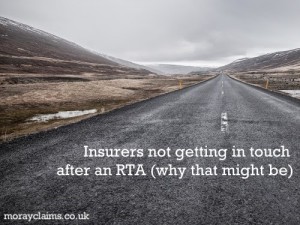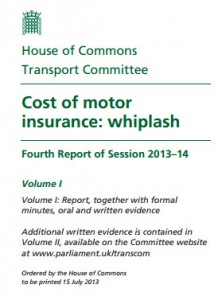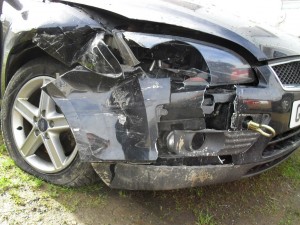How long does it take for Insurers to get in touch after a road traffic accident? That’s a question we received recently in the following terms: “I was involved in an RTA two months ago. I have not heard from the insurance company yet. How long does it take for them to get in touch? The accident was not my fault.” A significant collision - with lots of post-accident worries It turns out this accident involved a rear end shunt at a junction. The vehicle was pushed right off the road by the impact. The injured driver who contacted us had been knocked unconscious as a result of the crash. He spent two nights in hospital, was off work for several weeks and lost wages. An incorrect assumption He had been driving his works van and thought that his employers’ motor insurers would take care of his claim for his injuries and his financial losses, including his loss of earnings. This was a classic situation where you, as the accident victim, have suffered injury through no Continue Reading
Problems Diagnosing Whiplash Injuries
The Westminster Government is concerned that the quality of medical evidence in whiplash cases is not as good as it should be. It’s reckoned that claimants are duping doctors and exaggerating or inventing their whiplash symptoms. The Government proposes accreditation of medical experts to ensure greater consistency. The attack on whiplash claims is unrelenting. The insurance industry now suggests review of the law so that, as a matter of public policy, you should not be allowed to claim compensation for “low value” whiplash; instead, all insurers should have to pay is the cost of treatment, such as physiotherapy. What are the problems with whiplash? The terminology could be clearer, for a start. Whiplash is really a 'neck sprain', which commonly results from road traffic accidents where there is a rear end impact. It happens in an instant. The head is thrown first backwards and then forwards. Typically, the whole injury “event” is over within half a Continue Reading
Whiplash Injuries: How They Happen
The subject of whiplash injuries continues to appear regularly in the news and in this post we're looking at the mechanism of the typical whiplash injury. The medical difficulty which exists in proving the existence and extent of these injuries means there’s always going to be doubters shouting (sarcastically) “Git ower it!” at people who claim compensation for whiplash. The Westminster Government say they are going after the “whiplash fraudsters” who invent or at least exaggerate their injuries following road traffic accidents. On the other hand, if you’ve ever suffered a whiplash injury yourself you will know what a miserable experience it can be, interfering with all areas of daily life. During Road Safety Week (18-24 November 2013), the Association of Personal Injury Lawyers (APIL) has been encouraging prevention of whiplash injuries by motorists avoiding the dangerous practice of tailgating the vehicle in front. The classic whiplash accident scenario The classic Continue Reading
Whiplash Injury: UK Insurers Told By MPs To Sort Out Their Practices
MPs consider the effect of whiplash claims on motor insurance premiums The UK Parliament’s Cross-Party Transport Select Committee published its report “Cost of Motor Insurance: Whiplash” on 31 July 2013. The Westminster Government’s perception is that there is an increasing number of whiplash personal injury claims following road traffic accidents – some of which are invented by the supposed victims and, even where genuinely-based, the extent of the injury is often exaggerated. In the Government’s eyes, this is pushing up the cost of motor insurance. The Government has described the UK as “the whiplash capital of the world”. The Select Committee considered these issues as part of its remit. What is Whiplash and Why is it Problematic? The definition for whiplash used by the Committee was: “The neck pain which occurs after the soft tissue in the spine has been stretched and strained when the body is thrown in a sudden, forceful jerk.” This is a typical result of the Continue Reading
If someone runs into the back of you, is it always their fault?
Rear-end collisions are usually blamed on the driver behind — but there are rare situations where responsibility can be shared. The general rule is that, if you run into the back of another vehicle, you will usually be held at fault and will not be able to claim against the driver in front. This is because drivers are expected to leave enough space to stop safely if traffic ahead slows or stops unexpectedly. This law seems to be generally well understood. What if the driver in front behaved unreasonably? Many people assume sudden or unexpected braking automatically shifts blame — in most cases, it doesn’t. From time to time, we get enquiries from people who have rear-ended another vehicle but consider that the accident was not their fault because the driver in front stopped their vehicle suddenly or without good reason. An example of this is where you are second in the queue at a T-junction and you and the car in front are both turning left. You can see there is Continue Reading




